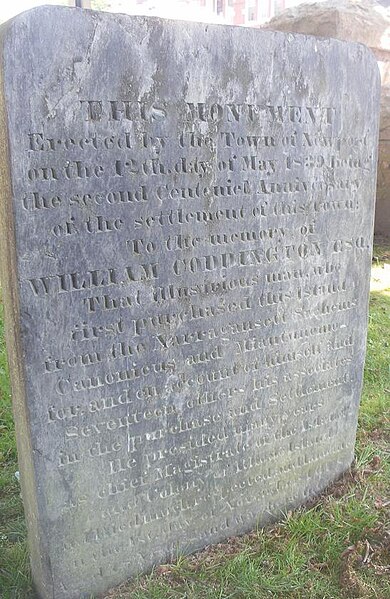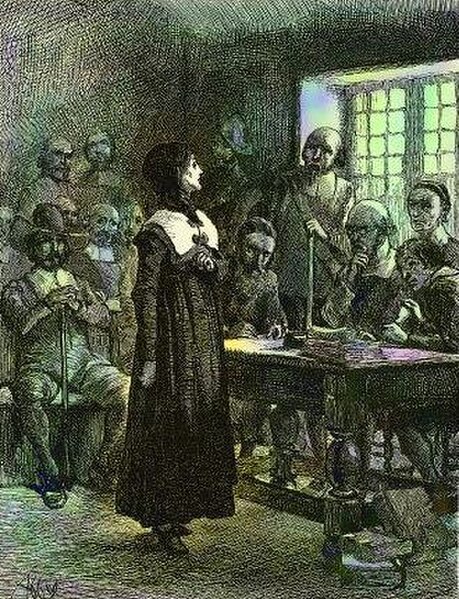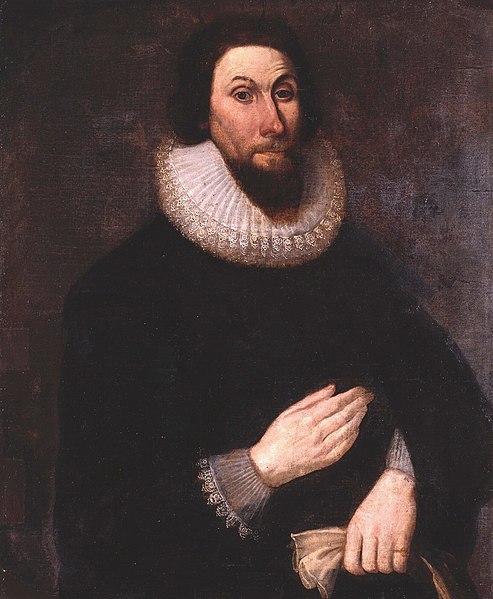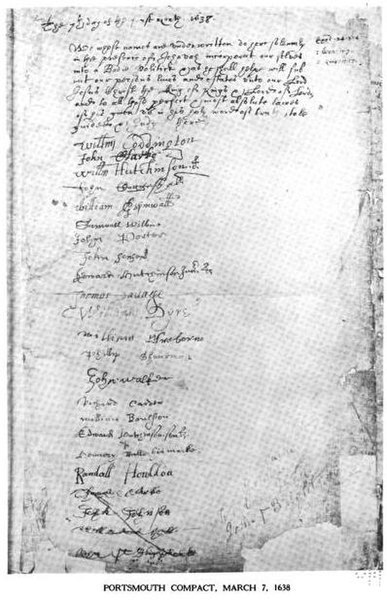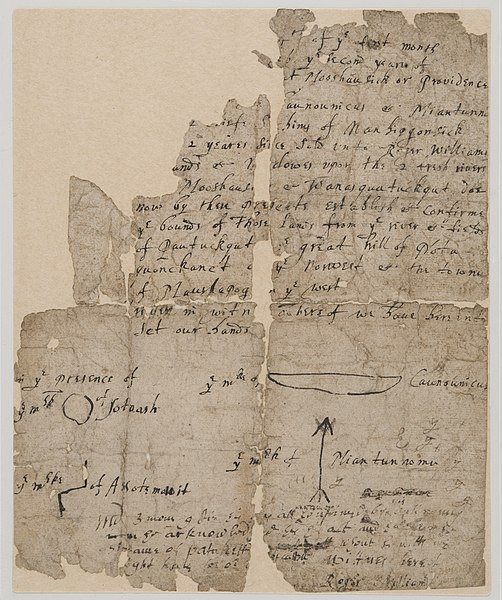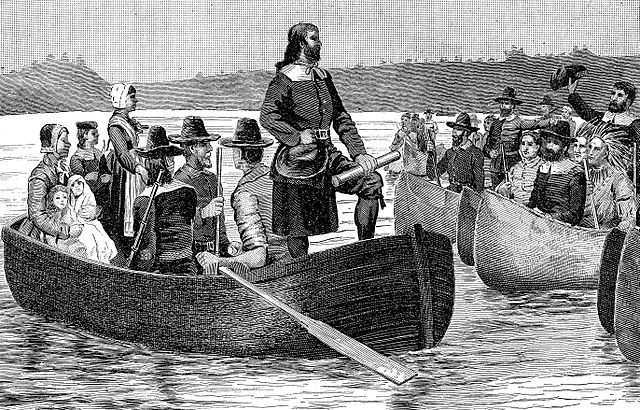William Coddington was an early magistrate of the Massachusetts Bay Colony and later of the Colony of Rhode Island and Providence Plantations. He served as the judge of Portsmouth and Newport in that colony, governor of Portsmouth and Newport, deputy governor of the four-town colony, and then governor of the entire colony. Coddington was born and raised in Lincolnshire, England. He accompanied the Winthrop Fleet on its voyage to New England in 1630, becoming an early leader in Boston. There he built the first brick house and became heavily involved in the local government as an assistant magistrate, treasurer, and deputy.
Memorial marker for William Coddington dedicated on 200th anniversary of Newport founding
Anne Hutchinson was likely given legal advice by Coddington during the Antinomian Controversy
John Winthrop presided over Hutchinson's trial in 1637 as both accuser and judge.
Portsmouth Compact with Coddington's signature first on the list
Colony of Rhode Island and Providence Plantations
The Colony of Rhode Island and Providence Plantations was one of the original Thirteen Colonies established on the east coast of America, bordering the Atlantic Ocean. It was founded by Roger Williams. It was an English colony from 1636 until 1707, and then a colony of Great Britain until the American Revolution in 1776, when it became the State of Rhode Island and Providence Plantations.
The original 1636 deed to Providence signed by Chief Canonicus
Roger Williams returning with the royal charter
Four-time governor of the colony and first chancellor of Brown University Stephen Hopkins was influential in his support of the American Revolution

